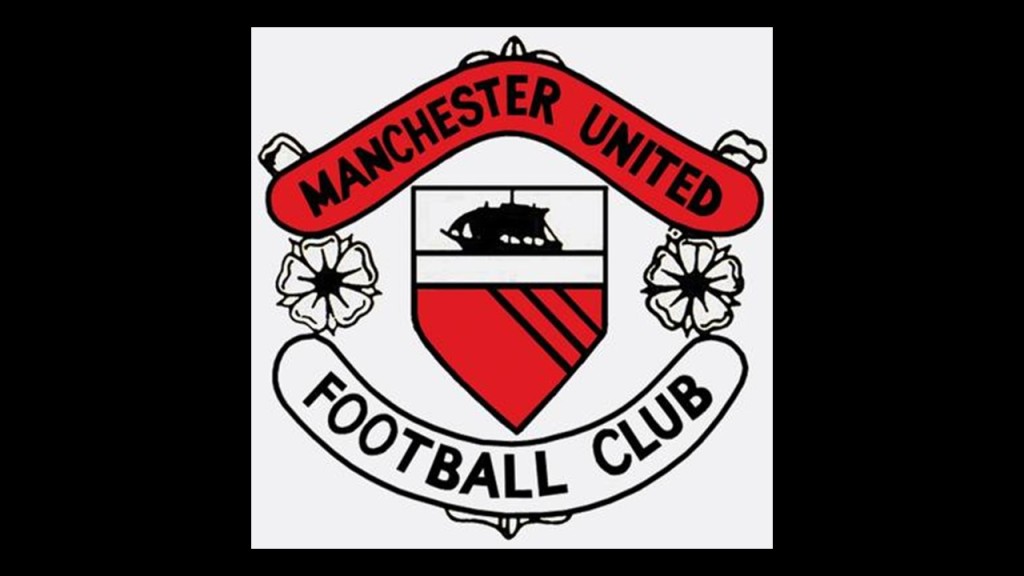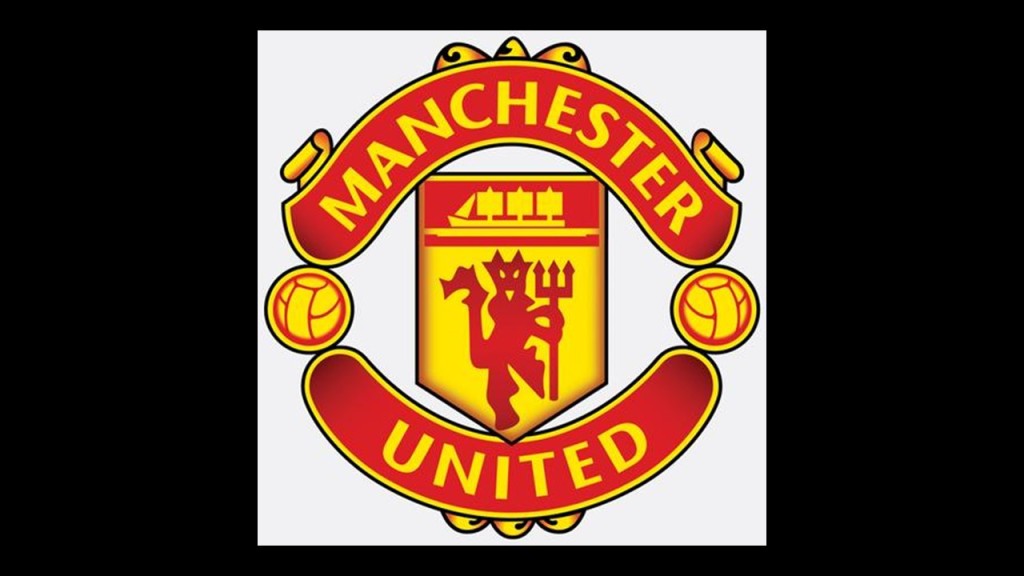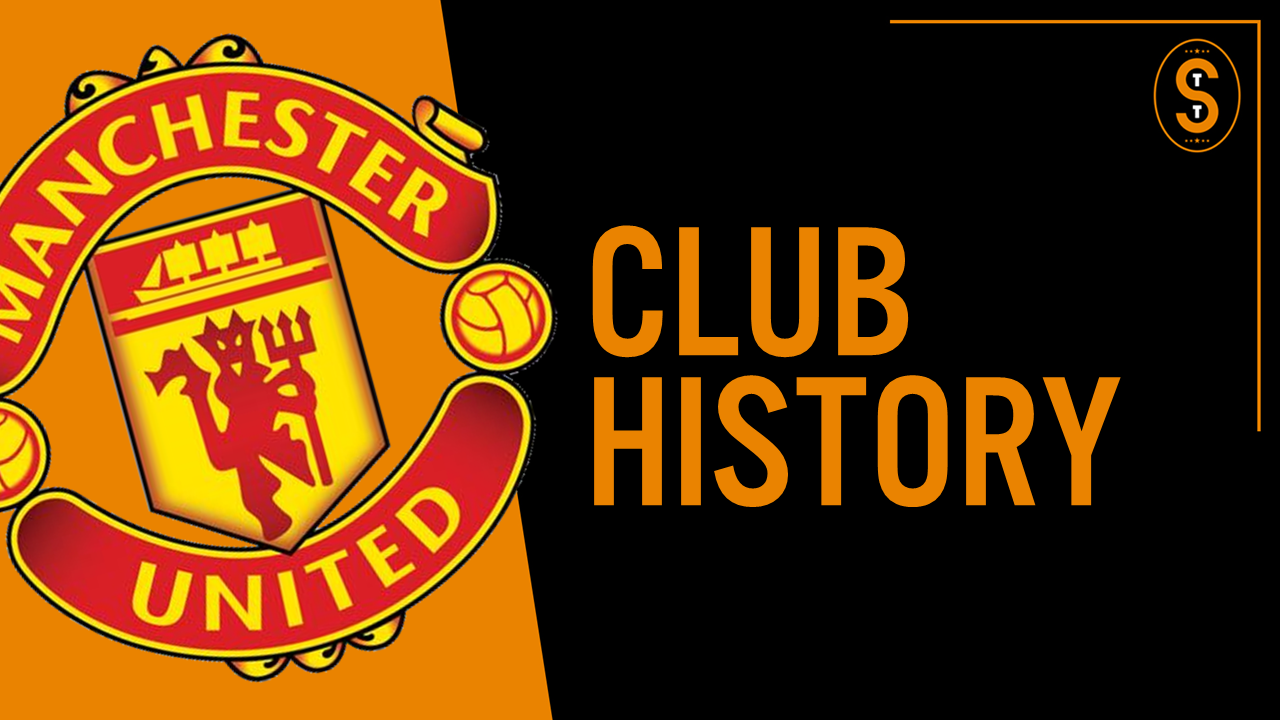Welcome to the Soccer Tavern, where we’re discussing the history, culture, and philosophy of the beautiful game. My name is Dave and in this video, we’re talking about the history of Manchester United Football Club. Pull up a seat and let’s start the discussion.
Manchester United is located in the southwest central part of the city of Manchester. Manchester is located in the northwest part of England in the United Kingdom. The club currently play in the Premier League and its home ground is called Old Trafford, which opened in 1910 and holds 75,643 people.
Origin
The club began in 1878 when workers from the Lancashire and Yorkshire Railway Company formed a soccer club called Newton Heath LYR after the Newtown Heath neighborhood of the city of Manchester and LYR was a reference to their company.
In 1892, the club was admitted to the Football League and changed its name to simply Newtown Heath. The club almost went bankrupt in 1902 before a local brewery owner John Henry Davies saved the club. With his investment, he became chairman of the board and immediately instituted changes to the club’s governing infrastructure.
In addition to these changes, he felt a name change was necessary to appeal to the greater Manchester population after being inspired by Manchester City’s name change 8 years earlier. The names of Manchester Central and Manchester Celtic were considered before the club settled on its existing name of Manchester United in the spring of 1902.
Nicknames
The club 3 nicknames. United, the Reds, and the Red Devils.
United obviously comes from the club’s name. There are many other club’s around the world with the words united in their name but Manchester United are the most famous and successful English club in the world. So chances are that when a person says United and it’s not obvious which club they are talking about, Manchester United would be your best guess.
The Reds nickname comes from the club playing in red shirts and white shorts as their main colors since the early part of the 20th century.
The nickname of Red Devils is slightly more evolved. In the 1950s, a local rugby club called Salford City Reds, also wore red and were a dominant squad. The rugby club went on a tour of France and impressed the French journalists so much that the Rugby club earned the nickname of ‘Les Diables Rouges’ which means the Red Devils in French. Apologies for the pronunciation there.
The club returned to the Manchester area with that nickname. By the late 1960s, Manchester’s manager, Sir Matt Busby, thought it would be more intimidating to opponents to use Red Devils nickname over the nickname of Busby’s Babes that journalists at the time preferred. United have been using the nickname of Red Devils ever since.
Crest

The current crest shares many similarities to the crest first used by Manchester United in the 1960s. The main similarity being the crest’s shape.

The current crest has been in use since 1998. Obviously, the words Manchester and United at the top and bottom of the crest come from the club’s name.
The ship is a reference to the city of Manchester’s famous Shipping Canal and comes from the city’s coat of arms.
The red devil was added in the 1970s after the club adopted the nickname at the insistence of Sir Matt Busby, as we’ve already discussed.
And the two historic soccer balls on either side of the crest, are a reference to the sport the club plays.
Important Events
There’s 4 important events I want to discuss here:
(1) On February 6, 1958, Manchester United was flying back from a European Cup match against Red Star Belgrade. The plane stopped in Munich to refuel and after 2 aborted attempts to take off, the plane crashed on it’s third attempt. Eight players, 3 staff members, 8 journalists, and 4 others died in the crash. It is the darkest day in the club’s history. Amazingly, the club’s manager, Sir Matt Busby, survived the crash and rebuilt his team over the coming years, which leads us to the 2nd event I want to discuss.
(2) On May 29, 1968 Manchester United played Benfica in the European Cup (now called the Champions League) at Wembley in London. Benfica had already won the competition twice and had one of the greatest players in soccer’s history, Eusebio, on their roster. After regulation ended 1-1, United was able to score 3 goals in extra time to win the match. Only 10 years after the club had been decimated by the Munich Air Disaster and still with Matt Busby as manager, the Red Devils became the first English club to win the European Cup.
(3) Exactly 31 years later, on May 29, 1999, Manchester United completed the first and so far only treble in English soccer history. For those that may not know, a treble is when a club wins the domestic league, domestic cup competition, and Champions league in the same season. The club had already won the Premier League and FA Cup that season. On May 29, the club was playing Bayern Munich in the Champions League final. United were trailing 1-0 heading into stoppage time. Bayern basically had one hand on the trophy, but Teddy Sheringham scored in the 91st minute before Ole Gunnar Solskjaer scored in the 93rd to dramatically win the title for United. It was one of the most dramatic and thrilling conclusions to a Champions’ League final in history.
(4) On May 14, 2011, Manchester United drew Blackburn Rovers 1-1 to win its 19th ever first division/premier league title. This is special in United’s history because it meant the club surpassed their arch rivals, Liverpool FC, for most top division titles in English soccer history. In 1990, Liverpool held a 18-7 margin in this department, but in only the space of about 20 years, United won 12 titles to pass their nemesis. Though the match wasn’t the greatest, this date lives in United folklore as the date the club surpassed Liverpool.
Supporters
Manchester United supporters are famous for singing the song Glory Glory Man United. The song was recorded as a motivational tactic to bring players and fans together for the 1983 FA Cup final between United and Brighton & Hove Albion.
The song was recorded by Frank Renshaw and was based on the song: The Battle Hymn of Republic which was popular during the American Civil War. It is a full anthem with lyrics specific to Manchester United and the club’s history. It’s become one of the most popular club anthems in the world sung by United fans all over.
Noteworthy Players
United has truly had too many great players in their history to get into details on their accomplishments, so I’m just going to name them here:
- George Best
- Bobby Charlton
- Eric Cantona
- Peter Schmeichel
- David Beckham
- Ryan Giggs
- Paul Scholes
- Roy Keane
- Cristiano Ronaldo
- Wayne Rooney
- And many more who we just don’t have the time to get into here.
Noteworthy Managers
The club has had 2 absolutely legendary managers that I want to discuss in this section. Sir Matt Busby and Sir Alex Ferguson.
Funny enough, during Sir Matt’s playing career, he never played for United, but did play for United’s now 2 biggest rivals of Manchester City and Liverpool. United fans definitely forgive him for that as he became manager in 1945. He greatly expanded the club’s scouting system and made a serious commitment to developing young players. That earned his team the nickname of Busby Babes due to the first team’s average age. He led the club to 5 first division titles, 2 FA Cups, and 1 European Cup. He survived the plane crash in Munich that we’ve already discussed and rebuilt the club within 5 years of that tragic event to be competing at the highest levels again. He retired after the 1968-1969 season as United’s greatest manager in their history at that time and is immortalized at Old Trafford with a bronze statue.
About 20 years later, Sir Alex Ferguson took over as manager at Manchester United in 1986. Over the next 27 years, he led the club to over 30 domestic and international trophies including 13 Premier League titles, 5 FA Cups, 2 Champions Leagues titles, and the first ever treble in English soccer history in 1998-1999 season. Sir Alex is United’s most successful manager of all-time.
Rivals
With United being the most successful club in England, the club naturally has many rivals. Liverpool, Manchester City, Arsenal & Chelsea are the 4 rivals I want to discuss here. We’ve already discussed these rivalries in our club history videos for each of those clubs, but in case you haven’t seen those videos, I’ll recap them now.
The Liverpool rivalry comes from a natural rivalry between the cities of Manchester and Liverpool. That dates back to building of the Manchester Ship Canal in the 19th century. From a soccer perspective, Liverpool became the dominant English team in the 1970s and 1980s. When Manchester United hired Sir Alex Ferguson and he started to build a squad that repeatedly won trophies, Liverpool was the natural target considering they had the most major trophies of any English club. Combination between cities and the two most successful clubs from those cities. This is likely the fiercest rivalry in England today.
Manchester City is Manchester United’s second biggest rival today. The two clubs play in the same city and the rivalry became violent in the hooligan days of the 1980s. The 1980s also coincided with United’s rise to domestic dominance while City really struggled. The rivalry has settled down from a violence perspective. But when City got new owners in 2008, they turned the club into overnight title contenders. The rivalry has taken on a new angle as both clubs compete for the best players and trophies. Also, City’s dramatic 2012 Premier League title at the expense of Manchester United has helped make this a big rivalry.
Manchester United and Arsenal each have a glorious history in English soccer, but it was always one or the other doing well. Then, Arsene Wenger joined Arsenal as manager in 1996 and built the club into title challengers. Manchester United were the dominant squad at the time and the clubs had some epic battled. Roy Keane, Manchester United’s combative center midfielder and Patrick Viera, Arsenal’s own combative center midfielder, were the leaders in these battles. In the late 90s and early 2000s, this was the fiercest rivalry in the Premier League. Nowadays, Man United manager Jose Mourinho and Arsenal manager Arsene Wenger seem to have their own rivalry, which helps keep this going even as United has more intense rivalries with other clubs.
Lastly, Chelsea is considered a rival for much the same reason as Man City’s rivalry has increased in recent years. Chelsea got a new owner in 2003 and built them into title contenders who now legitimately compete with United. The rivalry has been helped by incredible managers managing both sides over the last 2 decades or so. This rivalry doesn’t feel quite as heated as the rivalry with the three other clubs mentioned, but the two clubs are definitely rivals.
Stats & Records
The stats and records we’re about to discuss are as of March 2018 when we are recording this video.
United have spent 93 seasons in the top flight in their history.
The club has 44 major trophies including:
- 20 First Division/Premier League titles
- 12 FA Cups
- 5 League Cups
- 3 UEFA champions leagues/European Cups
- 1 UEFA Europa League
- 1 UEFA Cup Winner’s Cup
- 1 FIFA Club World Cup & 1 Intercontinental World Cup, which was the predecessor to the Club World Cup
The club’s record first team appearance holder is Ryan Giggs with 963 appearances.
The club’s record goal scorer is Wayne Rooney with 253 goals.
United’s clean sheet record holder is Peter Schmeichel with 180 clean sheets.
The Red Devils’ record transfer purchase was Paul Pogba from Juventus in Italy on August 8, 2016 for about £89M. I also wanted to note that the club bought Romelu Lukaku from Everton FC on July 10, 2017 for an initial fee of £75M plus potential £15M in add-ons. So Lukaku could end up being more expensive than Pogba in the future.
And the club’s record transfer sale was Cristiano Ronaldo to Real Madrid on July 1, 2009 for about £80M.
One last interesting fact about the club: Since October 30, 1937 (that’s over 80 years), Manchester United have had a graduate from their youth academy in the matchday 18 for every match. That’s almost 3,900 straight matches at time of recording.
So there you have it… a bit of history on Manchester United Football Club. Let’s continue the discussion in the comments section below this video.
Thanks for stopping by the Soccer Tavern. Hope to see you again sometime soon. Cheers.
